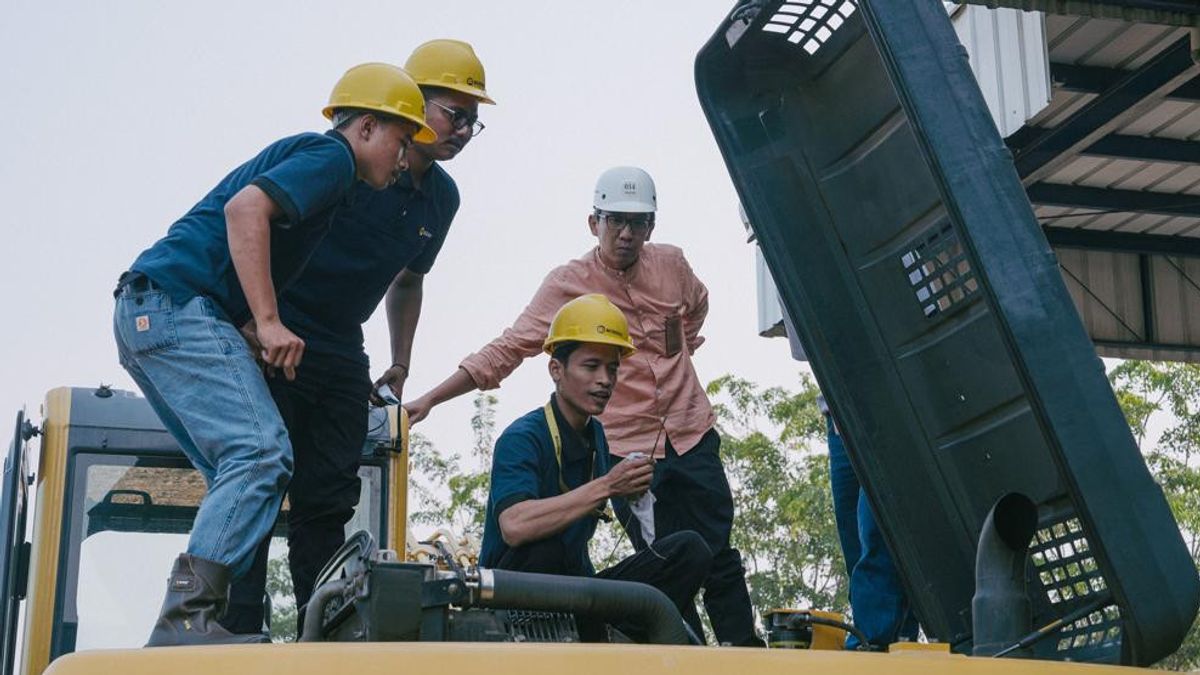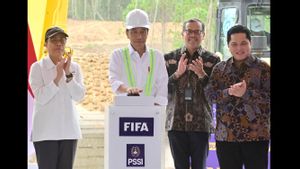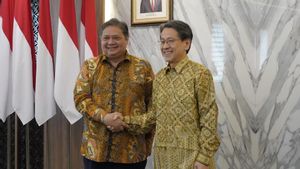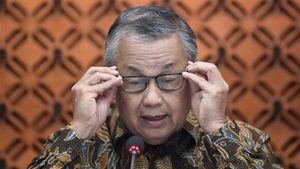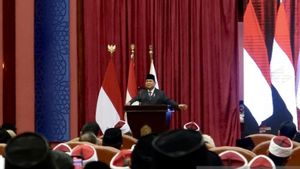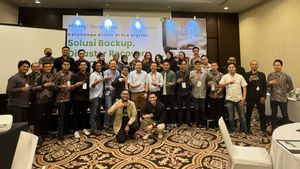JAKARTA - The Pre-Employment Card Program puts forward a more environmentally friendly green job skills training transition strategy, in the Asia-Pacific Economic Cooperation Interest Carrier Forum or APEC Multistakeholder Forum.
The event was held as part of APEC - Asia-Pacific Economic Cooperation Economic Leaders Week 2023, which aims to set a good example of the interventions carried out by the community to be able to meet the skills of vulnerable communities in facing global changes to the net-zero carbon economy.
In the session entitled "Preparing Manpower for a Strong Green Economy," Executive Director of Pre-Employment Denni Puspa Purbasari explained the Pre-Employment strategy in preparing the workforce for an inclusive transition to a green economy, including providing training scholarships, both offline and online, without an intermediary (end-to-end) digitally.
"Before the Pre-Employment, there were nine ministries/agencies that provided vocational training that were generally carried out face-to-face, with the number of participants each year reaching 170,000 people. Maybe that's a big number, but that's nothing compared to what is needed by the Indonesian people," Denni said last weekend. last weekend.
He stated that the digital end-to-end approach strategy was chosen to overcome the general problems of the Indonesian people whose access is often limited to obtaining training that is skilling, reskilling, and upskilling, especially for people who are in disadvantaged, frontier, and outermost (3T) areas.
Based on the data collected, 120 million workers in Indonesia have not received qualified employment training. Economic factors are one of the things that are often found in Indonesian society. Per capita income which is at an average of 200 US dollars per month does not allow the public to be able to take any training classes.
In addition, the lack of time available is also an obstacle that is often found. Workers must work from Monday to Friday, as well as allocate their time on weekends for families. In fact, a number of workers in the informal sector must work longer times.
Public ignorance of the training that must be taken is also one of the reasons that are often encountered, especially before the COVID-19 pandemic, where the majority of the training is conducted face-to-face.
"That's why Pre-Employment uses an end-to-end approach digitally, to be able to provide training access to everyone to improve their abilities. Because we don't have time, we have to keep working, and we have to provide relevant training", said Denni.
Pre-employment's digital end-to-end approach also answers Indonesia's geographical challenges, about how to provide training programs that are skilling, reskilling, and upskilling for people spread across more than thousands of islands in a country.
To make this easier, Denni explained that the Pre-Employment collaborated directly with a number of relevant stakeholders. One of them is the work exchange, to be able to find out directly the public's interest and the need for workers needed in a certain field. In addition, cooperation was also built with training providers, to be able to provide training that is in accordance with what is needed by the community.
"Therefore, we use a system with a more decentralized mechanism. We give people the option to be able to choose any training available in the Pre-Employment Card Program ecosystem," he said.
Through Pre-Employment, Denni revealed that every person who is selected has the right to benefits of IDR 4.2 million or around 300 US dollars to be able to buy the training program he wants, and is generally done online. The end-to-end approach digitally also allows the government to save the budget, so that the Pre-Employment Card Program can be enjoyed by more people in Indonesia.
In addition, everyone who has received benefits is no longer allowed to be a beneficiary in the next batch. This allows other community members to also have the opportunity to get training programs that are skilling, reskilling, and upskilling through Pre-Employment.
Through this strategy, until now it is recorded that Prakerja has provided benefits to around 17 million people with an age range of 18-64 years in Indonesia, with 51 percent of whom are women, 3 percent of people with disabilities, and have covered all regions in Indonesia.
In relation to the green economy, currently Pre-Employment has 12 green job skills training in its ecosystem, including the development of Corporate Social Responsibility (CSR) programs, carbon emission calculations, food waste management, economic, social, and environmental impact reports, modification of gasoline-engined vehicles to electricity, environmentally friendly clothing designs, and so on and can still develop in the future.
During the meeting, Vietnam Deputy Country Representative at The Asia Foundation Filip Graovac admired what Prakerja had done.
اقرأ أيضا:
"Although Pre-Employment is a government program, this program considers various aspects of society, the context of its work, in various provinces and regions, very locally based. However, it also considers the private sector and understands demand from the private sector. I hope I can learn more and really replicate this program in other countries, including countries that I represent, Vietnam," he said.
One of the participants from Thailand also claimed to have learned an important lesson from what Denni explained in the discussion.
The Pre-Employment Session provides important lessons on how to build cooperation between the public and private sectors. Pre-Employment builds and provides wider opportunities for a larger population and other parties to create ecosystems that support skilling, reskilling and upskilling," said Kittikun Saksung, Coordinator of the Global Youth Biodiversity Network for Asia and Thailand.
In this session there were also a number of other speakers such as the Director General of the Vietnam Department of Manpower Dr. Binh Vru Tong, AFL-CIO Specialist in Trading and Globalization Eric Gottwald, and Deputy Confederation of All Indonesian Trade Unions (KSBSI) Ema Liliefna.
The English, Chinese, Japanese, Arabic, and French versions are automatically generated by the AI. So there may still be inaccuracies in translating, please always see Indonesian as our main language. (system supported by DigitalSiber.id)
